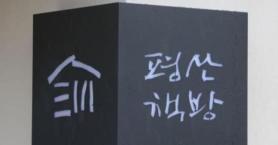
SEOUL -- Young people who are involved in organized crimes use social media platforms such as YouTube to attract ordinary people by showing off their "know-how" of quickly earning a lot of money or how to become a gangster, police data showed.
"Jopock" is a Korean term that is used to describe a member of an organized crime group. The gangsters were irresponsibly glamorized in South Korean films and dramas in the early 2000s. However, such Jopocks were pushed out of people's interests as police conducted a series of massive crackdowns on organized crimes involving drugs and fraud.
Also, it became harder for gangsters to make a living doing their traditional "thug" thing. The flow of cash became scarce every year due to more people using digital payments and credit cards. Closed-circuit television cameras (CCTVs) are everywhere, monitoring every person's footsteps and policemen arrive at least 10 minutes after a report is made.
Operating online gambling websites and group fraud projects are now Jopock's new money-making means. They target young people in their 20s and 30s who wish to make quick and easy money. Because gambling outside designated casinos is illegal in South Korea, people are lured to illegal gambling websites. Gagsters lead some people to invest their money in unidentified cryptocurrency investment projects.
According to data released by the National Police Agency on October 2, a total of 11 Jopocks were active as YouTube influencers in September 2023. The number increased from seven in April 2021. Police categorized YouTube creators who upload Jopock-related content or content including personal experiences in organized crimes as gangster influencers.
Lee Woon-hyuk, a Konkuk University's College of Humanities and Social Sciences professor, analyzed the situation and said: "Unlike the past, the culture of young people today, who are trying to display practical desires, is also reflected in the gang culture."
Professor Lee Yun-ho from Korea Cyber University's Police Science Department, said: "The younger generation is more likely to identify themselves with characters in videos and imitate them," and added, "Businesses like YouTube should also block the posting of violent videos and the like."
Copyright ⓒ Aju Press All rights reserved.




